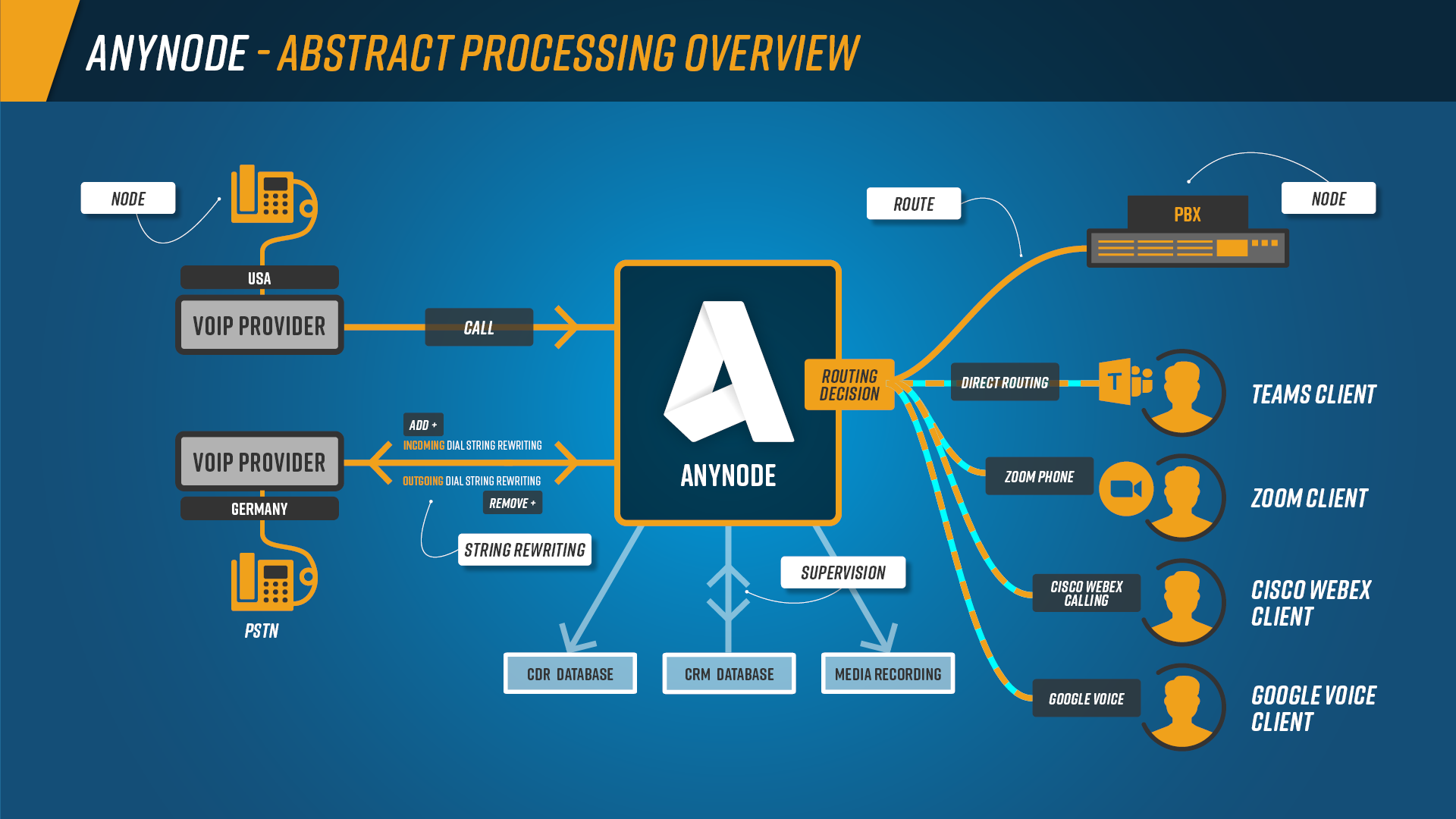Abstract Processing Overview
Ensuring secure communication within anynode requires a well-structured approach to routing and processing SIP connections. Security is deeply integrated into every stage of session handling, from initial authentication to the enforcement of routing rules and dial string rewrites. By defining clear routing domains, implementing controlled access, and leveraging filtering mechanisms, anynode minimizes exposure to unauthorized traffic and potential attacks.
The Abstract Processing Overview provides a foundational understanding of how SIP connectivity is structured within anynode, illustrating how incoming connections are processed, routed, and rewritten
You can define one or multiple nodes for SIP connectivity through anynode, and routing decisions can be made among these nodes using one or multiple routing domains.
While anynode can handle multiple routing domains, most standard scenarios work fine with just one.
Inbound SIP connections to a node get processed through its incoming dial string rewrite rules, and specific filters and routing decisions can be defined in the routes table of a routing domain.
You can even use matching conditions based on diversion numbers or defined lookup directories, and several advanced actions can be performed via route establishment handling.
Once a routing rule matches, further processing inside the routing table stops, and final rewritings of the source and destination dial strings can be performed with the outgoing dial string rewrite rules.
All these definitions follow the first match method, and rules get processed from top to bottom.
A node's dial string rewrite rules will be processed until a match is found or until there are no matching rules in the dial string rewriting and mapping table.
